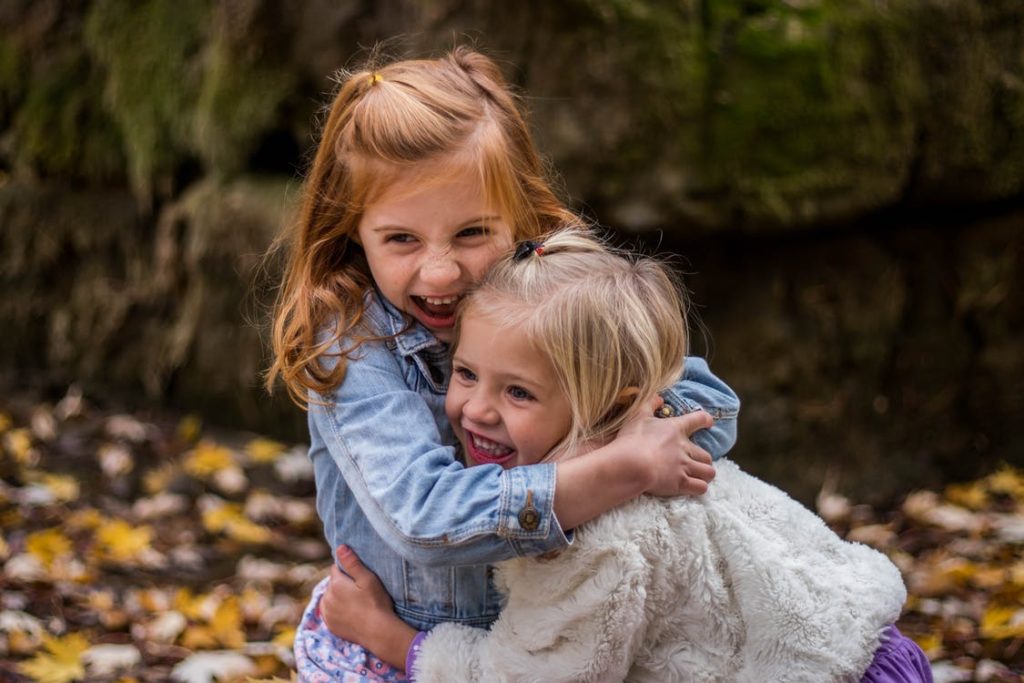Children’s Grief Information

Children's Grief Information
Children are resilient, aren't they?
Yes, children can be resilient when provided support, honest communication, and coping skills.
Children and teens have an understanding of death that is different than that of an adult and the concept of death changes as children age and go through different developmental stages. They may not display the same grief reactions as an adult, but that doesn’t mean they aren’t dealing with strong emotions. Clear, honest, age-appropriate communication is vital.
A Child's Understanding of Grief at Important Developmental Milestones

Understanding of Grief: Birth-2 years
Concept:
- No understanding of death
- Has an awareness of the absence of a loved one
- Notices changes in normal routine
- Notices the changes in emotions of the family
How to help:
- Physical contact, cuddling, reassurance
- Maintain routines
- Include the child in the mourning process when possible

Understanding of Grief: Children aged 3-5 years
Concept:
- Do not understand the permanence of death; sees it as temporary and reversible
- May think that their loved one is sleeping, or on a trip
- May wonder what will happen if another family member dies
- Repetitive with questions about the death
How to help:
- Physical contact and reassurance
- Encourage children to play and have fun
- Give simple, honest answers to questions
- Answer repetitive questions gently and with patience
- Allow safe ways to express feelings
- Include them in the mourning process

Understanding of Grief: Children aged 6-9 years
Concept
- Understands that death is final
- Concern that his/her thoughts, words, behaviors caused the death
- Thinks about life milestones without their loved one (graduation, marriage, etc.)
- Shows interest in the biological aspects of death
How to help:
- Give physical contact and have intentional time together
- Answer questions truthfully
- Allow expression of feelings both verbally and physically
- Encourage healthy and creative outlets drawing, reading, art, music, etc.
- Let child be a part of the mourning process. Allow them to make choices

Understanding of Grief: Children aged 9-12 years
Concept:
- Understands that death is final
- Concern that his/her thoughts, words, behaviors caused the death
- Thinks about life milestones without their loved one (graduation, marriage, etc.)
- Heightened awareness of death. Concerns that other loved ones will die
- Formulating spiritual concepts
How to help:
- Offer comfort and support
- Expect emotional reactions and mood swings and be patient and gentle
- Encourage healthy and creative outlets drawing, reading, art, music, etc.
- Find peer support
- Communicate openly and answer questions honestly. Be available to talk and listen to their concerns
- Give them choices in the mourning process

Understanding of Grief: Teens
Concept:
- Understands that death is final
- Concern that his/her thoughts, words, behaviors caused the death
- Thinks about life milestones without their loved one (graduation, marriage, etc.)
- High death awareness. Concerns that other loved ones will die
- May sense own impending death
- Need to be in control of feelings. Emotional displays are weakness.
- Internal conflict with need to be independent but feeling dependent and in need of support
How to help:
- Allow regressive behavior and provide comfort
- Expect emotional reactions and mood swings and be patient and gentle
- Encourage healthy and creative outlets drawing, reading, art, music, etc.
- Find peer support. Support relationships with understanding adult mentors
- Communicate openly and answer questions honestly. Be available to talk and listen to their concerns.
- Share your grief
- Give them choices in the mourning process
- Watch for high-risk behaviors
Below are some additional resources to help guide you in supporting the grieving child in your life.

Supporting a Grieving Child
This two-page PDF document provides many important concepts and guidelines for those supporting a grieving child.

Understanding Children's Grief
This PDF booklet provides a comprehensive overview of information useful to anyone providing support to a grieving child or teen.

Grief and Developmental Stages
A more comprehensive and thorough explanation of the way children tend to process feelings of grief according to their current developmental stage.

Supporting a Grieving Student
Things to keep in mind when providing support to students grieving the loss of a friend, faculty member or loved one.

Support Programs for Children and Teens
Michael's Place has developed grief support programs for children and teens. Learn how to get started.

Books for Children and Teens
Browse the collection of books and other resources intended to help children and teens through the process of grief.
If you are looking to support a grieving child, have questions or concerns, we are available to help. Please call us at the office at (231) 947-6453 or by email at GoodGrief@MyMichaelsPlace.net and talk with one of our grief support staff.

